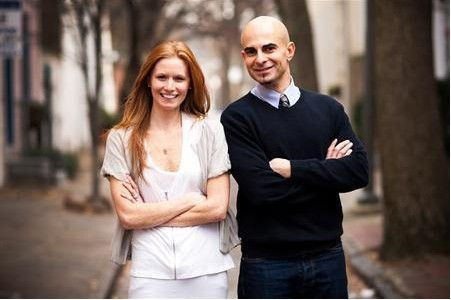Mobile payment startup builds buzz through causes

When competitors shut down payments to WikiLeaks after the controversial website released a slew of sensitive U.S. diplomatic cables, Sharif Alexandre refused to join the boycott.
The Egyptian-born entrepreneur and founder of Xipwire - a Philadelphia-based mobile payments startup - stood opposed to PayPal and Amazon and let customers continue making donations via cellphones.
It felt that people were being denied a right that they had, said Alexandre, 38, who declined to disclose the amount collected for WikiLeaks through secure text messages. We really didn't want to make a big deal about it. We put it out there and people picked it up.
Alexandre's devotion to the underdog, which in this case risked public opinion about his business, was ingrained early on as the son of Egyptian academics. The discrimination his parents encountered as Coptic Christians led them to the U.S.; initially landing jobs at Drexel University in Philadelphia, where they moved into a tiny apartment with their three young sons.
To a certain extent it comes from that minority status, said Alexandre, a University of Pennsylvania engineering graduate who began his career in the defense industry and later worked as an independent consultant. Where do you draw the line?
The notoriety boosted the company's profile in the emerging mobile payments arena that boasts players such as PayPal and the major mobile. Alexandre estimated that Xipwire added 1,000 new users during that time; its numbers have now reached 10,000 and are steadily growing.
The amount of support we got was amazing, said company co-founder Sibyl Lindsay, who befriended Alexandre when the pair commuted from Philadelphia to New York for their prior jobs. He (Alexandre) was very passionate about it.
TEXTING MONEY
Payments over mobile phones are widely used in emerging markets and Alexandre saw their potential in the U.S. while settling a dinner bill with friends. One person paid the entire tab using a credit card, while the rest, short on cash, gave verbal IOUs. Real-time texting, he thought, could simplify the process.
If you're going to have your money attached to a device, you'd rather have it be your phone than your wallet, he said. It gives you more control and security.
After spending several years building a prototype in his spare time, he teamed up with Lindsay, launching Xipwire in early 2010. Efforts to build awareness in the local community were well received, highlighted by a sign-up promotion at a Philadelphia festival that managed to shut down a well-known gelato stand with an overflow of orders.
That validated that people were willing to give this mobile payment thing a shot, said Alexandre, who secured $500,000 in angel funding in August.
Despite public commitments to personal causes, he remains unbiased about which groups receive funds using his company's payment platform. And, unlike some competitors, Xipwire was designed to work on any type of mobile phone.
I could send you 100 dollars and I could have a flip phone and you could have the iPhone, Alexandre said. And it would work.
CHEAPER THAN A CREDIT CARD
He's counting on retailers to embrace the technology. Xipwire, which costs nothing for individuals, plans to make its money by charging restaurants and other retailers transaction fees of 1.5 percent - lower rates than credit card companies. Already several Philadelphia restaurants have signed on for a trial.
It's a smart business model, to offer restaurants and the like something significantly cheaper than the credit card, said Jacob Sharony, a mobile technology expert and president of New York-based Mobius Consulting. But he added Xipwire will have to create stickiness in a crowded market. Everyone sees the potential there. There are many, many offerings.
The market for North American mobile payments, including the value of goods sold over cell phones, person-to- person money transfers and contactless payments is set to reach $163 billion by 2014, from $35 billion last year, according to UK-based Juniper Research.
In the end, it might be the buzz of Alexandre's personal passion that sets Xipwire apart. These days, he is using the technology to help Egyptian families in the U.S. cluster payments to send to their families in Egypt during the current political unrest. Previously he ran a campaign to aid a Coptic church that had been bombed on New Year's Day. Over the summer, he helped raise reward money to find the killer of a young woman who had been murdered in Philadelphia.
The service can do good, Alexandre said. It was really interesting to see that this really could be used for community organizing in such a quick way.
© Copyright Thomson Reuters 2024. All rights reserved.





















